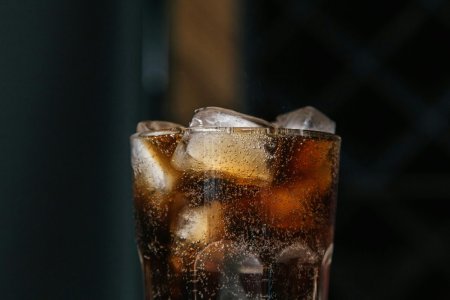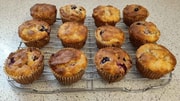Study uncovers heart disease risk linked to diet soft drink consumption
Imagine yourself sipping happily on your favourite diet soft drink, assured in the notion that you've dodged a sugar bullet by opting for the ‘light’ version.
But how light on your health is it truly?
A study unveiled a jarring possibility: diet soft drinks may increase your risk of a potentially dangerous heart condition by as much as 20 per cent.
Atrial fibrillation, colloquially known as A-fib, is a heart condition that refers to an irregular, often rapid heart rate that can cause poor blood flow.
Many detected with this condition describe it as a 'quiver,' 'flutter' or 'flip-flop' sensation in their chest. It's like your heart is tossing and turning in your chest, unsure of its rhythm, dancing to its own unsettling tune.

A research reviewed the correlation between the consumption of artificially sweetened drinks and the risk of developing A-fib.
It discovered that consuming two litres or more per week—which is equivalent to a medium-sized fast-food diet soft drink per day—heightened A-fib's risk by 20 per cent.
Comparatively, an equivalent serving of sugar-added beverages raised the risk by 10 per cent.
Penny Kris-Etherton, a member of the American Heart Association Nutrition Committee, stated: ‘This is the first study to report an association between no- and low-calorie sweeteners and also sugar-sweetened beverages and increased risk of atrial fibrillation.’
Although the study could merely establish an association between sweetened beverages and A-fib, this correlation persisted even after adjusting for any genetic predisposition to the condition.
‘We still need more research on these beverages to confirm these findings and to fully understand all the health consequences on heart disease and other health conditions,’ Kris-Etherton pointed out.
‘In the meantime, water is the best choice, and, based on this study, no- and low-calorie sweetened beverages should be limited or avoided,’ she advised.
According to the Australian Institute of Health and Welfare, A-fib affects roughly 2.2 per cent of the Australian population, which is more than 500,000 people in 2021.
The prevalence of A-fib increases with age, affecting an estimated 5.4 per cent of Australians aged 55 and above.
Meanwhile, around 40 million people worldwide are struggling with this elusive condition.
A significant proportion of these individuals grapple with symptoms like chest pain, palpitations, shortness of breath, and fatigue. Unfortunately for some, A-fib remains symptomless.
Once detected, however, proper treatment strategies involving a combination of medication, lifestyle changes, and, if necessary, surgery can help manage the condition, restoring a more regular heart rhythm.
It's also important to remember that the risk of A-fib is significantly associated with conditions like obesity, type 2 diabetes, chronic kidney disease, alcohol abuse, illicit drug use, and high blood pressure.
To learn more about A-fib, you may visit Heart Foundation's website and Healthdirect website. You can also watch this video here:
Source: Heart Foundation/YouTube
If you have this condition and need support, you may call the Healthdirect helpline on 1800 022 222 (known as NURSE-ON-CALL in Victoria). A registered nurse is available 24/7 to speak with.
The study emphasised the need for more research to understand these drinks' health consequences fully and lays bare the potential fallacy of considering low-sugar and low-calorie artificially sweetened beverages as a healthy option.
While no definitive conclusions have been drawn so far, the findings indicate that they might pose unforeseen health risks.

What are your thoughts on this study, members? Have you ever consumed diet soft drinks? Let us know in the comments below.
But how light on your health is it truly?
A study unveiled a jarring possibility: diet soft drinks may increase your risk of a potentially dangerous heart condition by as much as 20 per cent.
Atrial fibrillation, colloquially known as A-fib, is a heart condition that refers to an irregular, often rapid heart rate that can cause poor blood flow.
Many detected with this condition describe it as a 'quiver,' 'flutter' or 'flip-flop' sensation in their chest. It's like your heart is tossing and turning in your chest, unsure of its rhythm, dancing to its own unsettling tune.

A study has suggested that the consumption of diet soft drinks may be linked to a higher risk of heart disease. Image source: Pexels
A research reviewed the correlation between the consumption of artificially sweetened drinks and the risk of developing A-fib.
It discovered that consuming two litres or more per week—which is equivalent to a medium-sized fast-food diet soft drink per day—heightened A-fib's risk by 20 per cent.
Comparatively, an equivalent serving of sugar-added beverages raised the risk by 10 per cent.
Penny Kris-Etherton, a member of the American Heart Association Nutrition Committee, stated: ‘This is the first study to report an association between no- and low-calorie sweeteners and also sugar-sweetened beverages and increased risk of atrial fibrillation.’
Although the study could merely establish an association between sweetened beverages and A-fib, this correlation persisted even after adjusting for any genetic predisposition to the condition.
‘We still need more research on these beverages to confirm these findings and to fully understand all the health consequences on heart disease and other health conditions,’ Kris-Etherton pointed out.
‘In the meantime, water is the best choice, and, based on this study, no- and low-calorie sweetened beverages should be limited or avoided,’ she advised.
According to the Australian Institute of Health and Welfare, A-fib affects roughly 2.2 per cent of the Australian population, which is more than 500,000 people in 2021.
The prevalence of A-fib increases with age, affecting an estimated 5.4 per cent of Australians aged 55 and above.
Meanwhile, around 40 million people worldwide are struggling with this elusive condition.
A significant proportion of these individuals grapple with symptoms like chest pain, palpitations, shortness of breath, and fatigue. Unfortunately for some, A-fib remains symptomless.
Once detected, however, proper treatment strategies involving a combination of medication, lifestyle changes, and, if necessary, surgery can help manage the condition, restoring a more regular heart rhythm.
It's also important to remember that the risk of A-fib is significantly associated with conditions like obesity, type 2 diabetes, chronic kidney disease, alcohol abuse, illicit drug use, and high blood pressure.
To learn more about A-fib, you may visit Heart Foundation's website and Healthdirect website. You can also watch this video here:
Source: Heart Foundation/YouTube
If you have this condition and need support, you may call the Healthdirect helpline on 1800 022 222 (known as NURSE-ON-CALL in Victoria). A registered nurse is available 24/7 to speak with.
The study emphasised the need for more research to understand these drinks' health consequences fully and lays bare the potential fallacy of considering low-sugar and low-calorie artificially sweetened beverages as a healthy option.
While no definitive conclusions have been drawn so far, the findings indicate that they might pose unforeseen health risks.
Key Takeaways
- Drinking more than two litres a week of artificially sweetened beverages may increase the risk of atrial fibrillation by 20 per cent, according to a study.
- Atrial fibrillation (A-fib) is a heart condition associated with an irregular heartbeat that is on the rise and can lead to serious health issues, including strokes and heart failure.
- The study also found that drinking sugar-sweetened beverages raised the risk of A-fib by 10 per cent.
- Experts recommend reducing or avoiding artificially sweetened and sugar-sweetened beverages, emphasising water as the best choice for hydration to avoid potential health risks.
Last edited:








